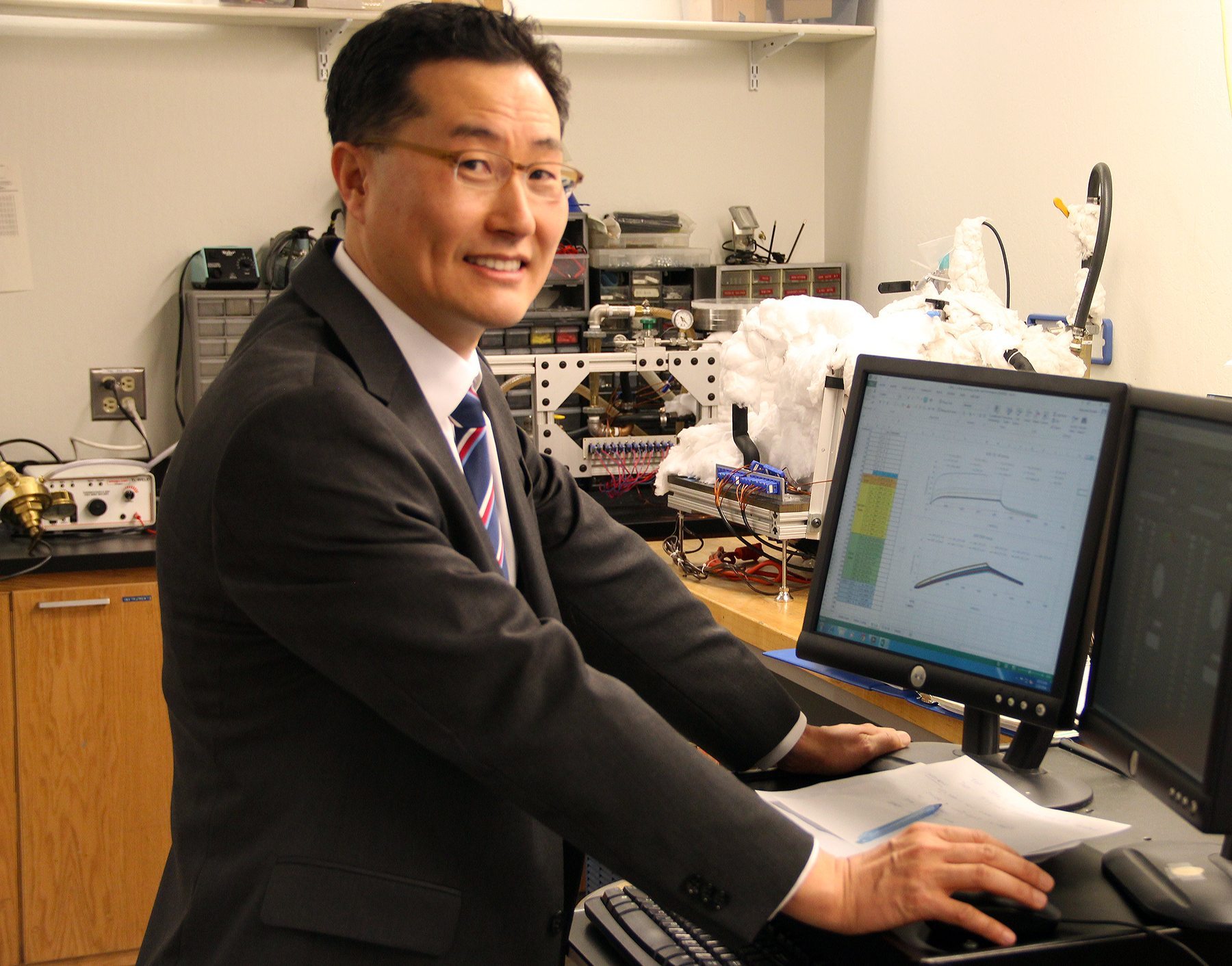 Chanwoo Park, assistant professor of mechanical engineering, joins a growing group of researchers at the University of Nevada, Reno who have received prestigious and highly competitive National Science Foundation CAREER awards.
Chanwoo Park, assistant professor of mechanical engineering, joins a growing group of researchers at the University of Nevada, Reno who have received prestigious and highly competitive National Science Foundation CAREER awards.
The Faculty Early Career Development (CAREER) Program award is given to junior faculty at the beginning of their academic careers who exemplify the role of teacher-scholars, placing focus on high-quality research and education activities.
The five-year, $400,000 award will allow Park to further his energy-related research in nano-, micro- and macro-scale thin-film evaporation for electronic cooling, energy systems and wastewater treatment applications. The insight gained from Park’s research will advance and improve a variety of emerging applications such as solar-powered point-of-use portable water desalinators using membrane distillation, bio-heat transfer from hyperthermia implants for cauterizing tumors, lab-on-a-chip, nano-fluidics, functional surfaces and miniature cooling systems of microthrust-powered satellites.
The award will also support energy-centered STEM (science, technology, engineering and mathematics) programs for K-12 and college students and be used to increase underrepresented student enrollment in engineering programs.
Park is the fourth faculty member in the mechanical engineering department, and the 12th within the College of Engineering, to receive the nationally-competitive award.
“I am so honored to receive the NSF CAREER award as recognition of the research and education I have been doing at the University,” Chanwoo Park, assistant professor in the mechanical engineering department, said. “I believe that the unique interdisciplinary collaborations with faculty in the College of Engineering helped shape my research for clean energy and water at both science and engineering levels.”
“The College of Engineering is very proud of his accomplishment as it exemplifies excellence, competitiveness and the promise for a great future full of scholarship and productivity,” College of Engineering Dean Manos Maragakis said. “It is a very competitive award on a national scale, and well-deserved for Chanwoo.”
Park is director of the Two-Phase Heat Transfer and Sustainable Energy Lab at the University, where he conducts the multi-scale phase-change heat transfer research along with work on electric vehicle propulsion systems, wastewater treatment technology and renewable energy.
He received his doctorate in mechanical engineering from the University of Michigan in Ann Arbor and joined the College of Engineering teaching and research staff in 2008. He has extensive experience in industrial engineering and manufacturing fields, specifically applying concepts of two-phase heat transfer (evaporation and boiling) for advanced electronic, automobile and spacecraft thermal management.
Before joining the University of Nevada, Reno faculty, he was a group leader at Pennsylvania’s Advanced Cooling Technologies, Inc., where he developed an advanced cooling loop technology. He also worked as a research specialist in Michigan’s Ford Research and Advanced Engineering Laboratory, developing engine and battery cooling systems and vehicle thermal management systems for hybrid and fuel cell electrical vehicles. Much of his research has been funded by the NSF, Department of Energy, Environmental Protection Agency, U.S. Army, U.S. Navy, U.S. Air Force, Missile Defense Agency, NASA and Hyundai Motor Company.
The National Science Foundation is an independent federal agency created to promote the progress of science; funding basic research conducted by America’s colleges and universities in the many fields of science and engineering, ensuring that research is fully integrated with education so that today’s work will also be training tomorrow’s top scientists and engineers.
The NSF is an independent federal agency created to promote the progress of science. The agency funds basic research conducted by U.S. colleges and universities in the many fields of science and engineering, ensuring that research is fully integrated with education to prepare tomorrow’s top scientists and engineers.

